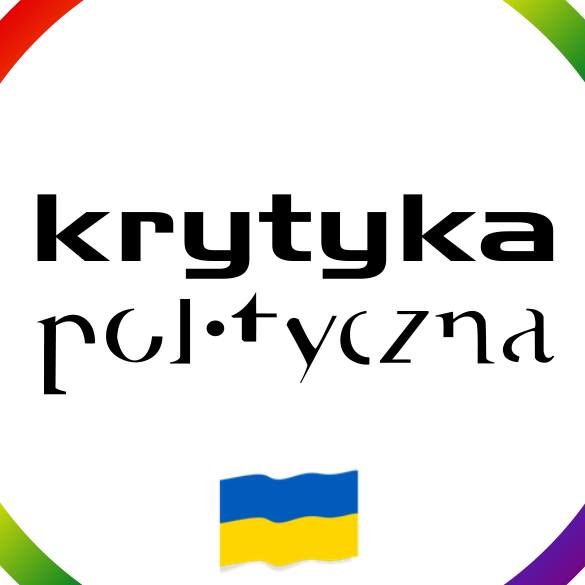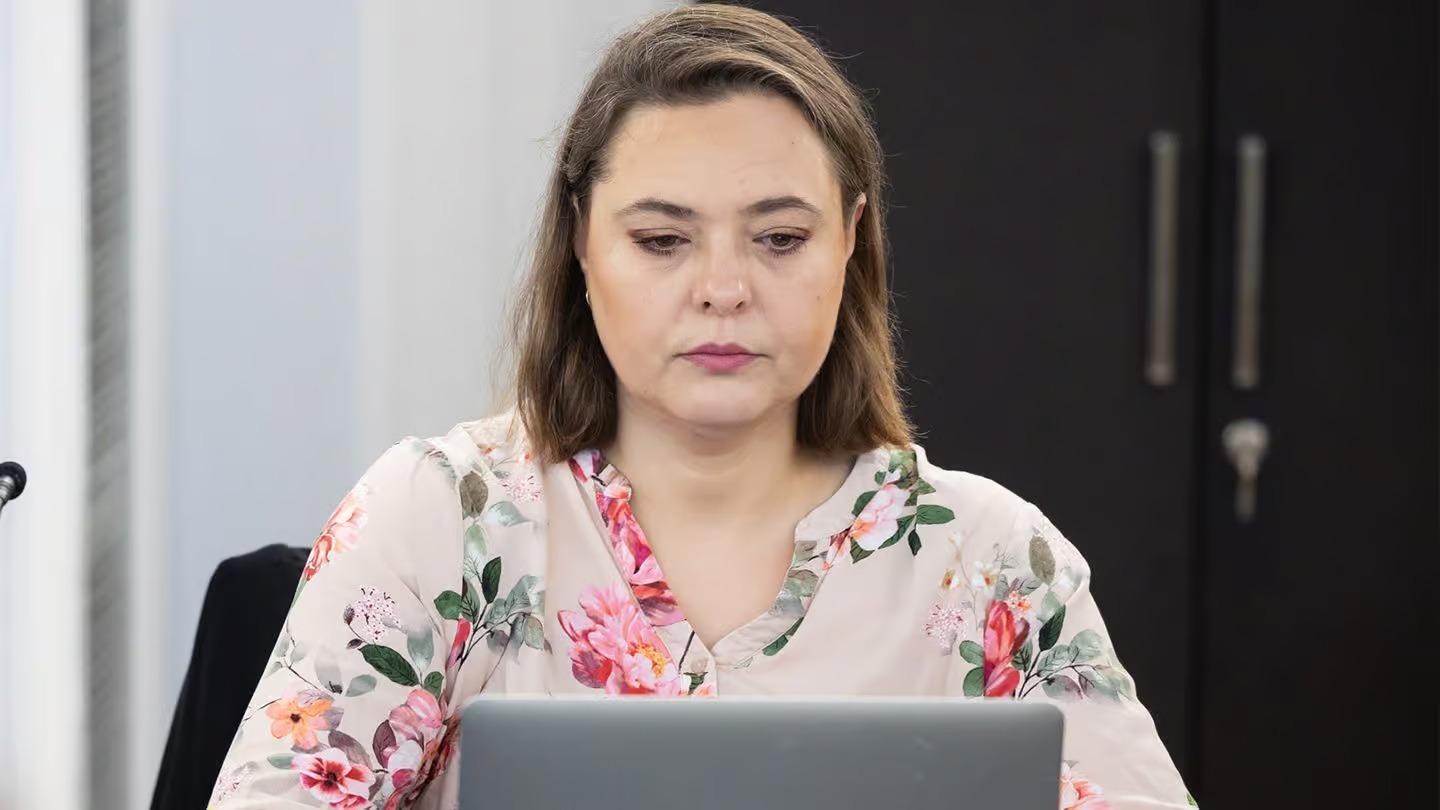Much of the Western left is stuck in the conviction that it is necessary to get along with Russia as quickly as possible. We keep saying that this is impossible, at least as long as it is ruled by Putin, a dictator who treats our region as his sphere of influence, which has slipped away for a while and which he wants to regain,” says Senator Anna Gorska of the Polish Together party, which represents young left-wing circles in parliament.
Katarzyna Przyborska: The leftist parties and groups of our region have formed an alliance with the peculiar name CEEGLA. What members have in common Alliance of the Green Left of Central and Eastern Europe ?
Anna Gorska: First of all, a look at Russia, which we unanimously consider a threat to the democratic world.
Unlike the left of old Europe?
Yes. According to many leftist European parties, the war in Ukraine is a local conflict.
Or even a proxy war Russia with the US .
That’s right. And we, coming from countries that have experienced centuries of Russian imperialism, realize the danger and the need to defend ourselves. We believe that our perspective must be taken into account.
Why does this position not find understanding? Does the Western left feel “older” and “stronger” than the countries that joined the EU in the 21st century?
Yes, they definitely feel they have a better understanding because they have been on the scene longer. They are also driven by such naive pacifism, fed by groups linked to Russia. We have explained from the beginning that very strong support for Ukraine – including military support – is crucial for the security of the region and Europe as a whole. It was military aid that became the clear axis of division, so we quickly decided to send a clear signal that things were different from our region’s perspective.
Quickly, that is?
The war broke out in February, and we had already invited our current partners to Warsaw in early March and issued a statement on the need to support Ukraine. Among others, we were accompanied by Jussi Saramo from Finland, which has a long border with Russia and still fairly fresh historical experience, a perspective that converges with ours on many levels. This was the first step. Then we mapped out more organizations and realized that there was some young, green, progressive left that took a sober look at the war. We have come to the conclusion that it will be easier for us to talk to the Western Left when we are united.
Doesn’t the fact that Ukraine is not surrendering bring a change in the perception of this war by the Western left?
My sense is that attitudes are changing, but very slowly, and sometimes these changes are posturing. If we are talking about such organizations that counted in Europe – I use the past tense on purpose, because I am thinking, for example, of Germany’s Die Linke or Spain’s Podemos – they are still largely stuck in the conviction that it is necessary to get along with Russia as quickly as possible. We keep saying that this is impossible, at least as long as it is ruled by Putin, a dictator who treats our region as his sphere of influence that has slipped away for a while and which he wants back.
But Die Linke and Podemos are in crisis.
They have clearly weakened. Half of Die Linke has moved to very dangerous, even nationalist positions. Podemos will also have a hard time rising. Some of its voters have been taken over by Yolanda Díaz and her Sumer party. We are in contact with Díaz, it has a different policy than Podemos. For that, the Portuguese left took our side right away, as early as 2022.
How different?
I’m sure Diaz understands better that Ukraine’s defeat is a threat to peace and security throughout Europe, including on the Iberian Peninsula.
CEEGLA includes – in addition to Together – organizations from Lithuania, the Czech Republic, Romania, Hungary, Ukraine. Scandinavia was represented by Jussi Saramo of Finland, the only parliamentary politician in the group, a former education minister. Were there no Swedes, no Norwegians?
Sweden was represented by MEP Malin Björk, a longtime feminist activist, and Jonas Sjöstedt, a former MP and chairman of the Swedish Left. But the fact is, we are a little different with the Scandinavians. We advocate strengthening Europe’s military alliances, to build – we say it plainly – a European army, and not to rely solely on NATO.
Because the policy of the alliance may depend on, Who will be the president of the U.S. .
Of course. There is a real danger that the president will again be a man who openly and directly says that he will not help Europe if Putin attacks it. We need to adopt a responsible defense strategy and security strategy and build ourselves up militarily as well, unfortunately. Meanwhile, some of our Scandinavian partners are skeptical about building a European army.
However, they entered NATO.
Finland was still being brought into NATO by a leftist government, but we must consider the timing of the decision and its geopolitical significance. Finland and Sweden are countries with very large and important military potential for the alliance. In addition, it showed Putin that when he attacks our allies and friends, we become like a Viking formation (a wall of shields), or like a Roman defensive “turtle.” Let’s hope this is also the case after the US elections.
CEEGLA, in addition to Together, is made up of couch parties and groups, not parliamentary ones. Why is there so much weakness in the leftist parties?
Countries in our region have leftist parties with post-Soviet origins. Together, on the other hand, is a young, progressive, green left, and among such groups we are positioning ourselves, with them we are strengthening relations. Czech Budoucnost is several years old and currently has one councilor in Prague. Lithuanian Kartu is also a young organization, which on the ruins of the old parties has brought together young activists not planted in the hitherto existing political arrangements. The Social Movement from Ukraine has strong ties with Ukrainian labor unions. The conditions for forming a party are nightmarishly difficult in Ukraine, including the fact that huge funds are needed to do so, which concretizes the political scene and favors the oligarchies. Demos of Romania is an organization similar to ours, albeit outside the parliament. Szikra of Hungary has one MP.
We are committed to ensuring that the young leftist movements in the region cooperate and build each other up. We have a similar history, similar experiences of regaining freedom over the past three decades, the inequalities resulting from the transition and the wild capitalism of the 1990s. The transition experience has had a similar impact on societies in countries where we have created a “brick”. The same is true of trade unions, which are much stronger in Western European countries.
Listening to liberal politicians, in one breath talking about “extreme, fascist, pro-Russian right-wing and left-wing parties,” I think you also have in common the experience of distrust of the left in post-communist countries.
Western Europe understands this pluralism a little differently. Even the admittedly radical left has been in Europe and participating in politics for years. In our region, the new progressive left is more difficult to deal with this resentment precisely because here everything leftist is considered communist, post-Soviet, pro-Russian.
In Poland, liberals are more sympathetic to the Confederation.
This is incredible, because it is clear from how we operate on a daily basis and what we do who is a pro-state force and who is pro-Russian. Just listen and see what Confederation politicians say and do. In Poland, it is reluctantly recalled that Roman Dmowski preferred to smile at the tsar rather than act with the forces of independence. This was the tradition of the right then and is similar now.
Confederation and Law and Justice threaten migration, PO lacks an idea for it. Maciej Duszczyk announced that Poland will not accept a single migrant from the migration pact. And migration is, and will be, all over Europe. After the arrangements for the migration pact, it is clear that the The continent is slowly turning into a fortress. Is the “brick” forging a leftist idea of migration policy?
The European Union, in our view, does not have a migration policy. It is limited to keeping migrants somewhere on the fence and funding countries that can stop them from coming to Europe. We are closer to the Scandinavian models, although we can see what mistakes they have made over the years in their migration policies.
For example?
Allowing ghettoization, as in Sweden. On the resulting crises, the right grew. We are looking towards Norway, which, although not in the European Union, is also close to us. There, conditions for newcomers seem much better. There is language learning, the possibility of legal work. These are role models worth reaching for. As the climate crisis intensifies, migration will increase. We can no longer ignore this. Especially since we have a serious demographic crisis in Poland, all over Europe. We need people. Two million refugee women and refugees from Ukraine stayed in Poland, and yet they neither took away our jobs nor occupied the queues to doctors, as we were threatened to do.
How will you run for the European elections? Is it according to the coalition key, the Polish key, so that it is easier for Polish voters to understand, or according to the existing parties at the Union level?
I think that in Polish conditions the first option will be more effective. Few people in Poland are interested in factions, blocs and international parties. I, for one, wish we had a left-wing list for the European Parliament.
But in the EP, Together and the New Left are not in the same faction. Actually, why?
We are not part of the S&D family of socialists and democrats. However, our common task is to present voters with a left-wing list for the European Parliament, with a coherent, concrete program.
Which is to say?
Since we first ran for the EP – as the Razem party, the Social Justice Movement and the Labor Union – we said that we wanted to strengthen democratic structures in the European Union, to give more importance to the European Parliament. So that solidarity, which is one of the foundations of the functioning of the EU, is not wasted, but that it truly includes all countries. That the Union should keep an eye on the equalization of social standards in the various countries, because it depends on this if it breaks up for us. The young EU countries of our Central and Eastern European bloc are still in a tailspin, both in terms of wages, compliance with labor laws, livelihood and social issues, and freedom of association in unions.
That is, you want to abandon the semi-periphery, the role of a reservoir of cheap labor. Can it be done?
There is no way out. The sustainability of the European Union depends on the equalization of welfare levels. And we want the Union to strengthen cooperation in more areas – in the economy, defense, social affairs. This is a fundamental issue concerning our broader security.
Aren’t you afraid of losing your independence? Identity obfuscation?
On the contrary. I think that only when we equalize the social and living standards of each country, the standards of health care and education, when we can ensure from the European level that large corporations do not have the kind of influence on our economies that they have today – we will be able to talk about independence. Now it’s Facebook, Microsoft and Google who are dictating terms.
So we are not threatened by Brussels and Berlin, but by Microsoft and Google?
If we can’t make tax policy ourselves because we are afraid of big corporations, it means that we are dependent on them, we have lost our subjectivity. People are getting better at linking threads and recognizing that they have to collect for medical treatment at drop-offs, while big companies don’t pay taxes. And there are enormous challenges ahead, such as the massive energy transition. Either we carry it out in such a way that it is socially just, under state control, or we allow the free America we have faced so far. In the latter scenario, it will come to pass that the nuclear power plants will be owned by American, Korean or private Polish capital – which will seek to raise prices, because investments must pay off, and the state will succumb to this capital, because what is it supposed to do if it faces, for example, the vision of “pulling the plug.” This is one of the important elements that I think should get on the European agenda.
Especially since Europe has taken out a massive joint loan for the energy transition, so this money is unlikely to go into private pockets.
We talked in the Union – after the outbreak of war in Ukraine, when the energy crisis was growing and electricity prices were getting more expensive – that excess profits of energy companies should be taxed. One of the countries that blocked this was Poland.
However, isn’t it a shame that you are not in the October 15 coalition ? With local elections, you could build structures, which the Together party has little of. Don’t you fear the fate of ephemera?
I am optimistic. We have a really well-mapped Poland, real opportunities. Our priority is to run for city, county and municipal councils.
As Together? As the Left? In an even broader coalition?
Local elections are essentially hundreds of small elections. Today, elections at municipal, township levels are very often runoffs from voters’ election committees, broad coalitions. We will run sometimes in broad coalitions, against the current authorities, sometimes where we have a cool, progressive city council and mayor, and sometimes we will want to support good local government for the next term.
How many people do you want to bring into local government?
I honestly hope for a dozen seats in various councils. We have the patch of a metropolitan party, but we target cities of 30-40,000 people. Not counting the assemblies – here talks with coalition partners are ongoing.
But don’t you pity the opportunity, which has passed, to gain experience by taking government, ministerial positions?
This experience can be gained in different ways. We don’t have ministers, but there are people in our party who have experience. We are not a cadre party. It will be more valuable for us to build up in the regions, in the cities, than to forge cadres in the administration. This gives us visibility. And then there may be snap elections.
Aren’t you afraid that voters will then punish you for your separateness, your unwillingness to co-create the government , to take some responsibility – and simply won’t cast their votes for the Together party?
There are quite a few people disappointed, but there are also many who are pleased with the decision not to join the coalition on October 15. We do not leave the democratic camp, we do not stand in hard opposition, we are still in the Left Club, and we say all the time that we will support all good solutions. As a senator from the Senate Pact, I feel I am part of that camp that pushed PiS out of power.
But there are also things that we will criticize. And we think it’s a good thing that there is a force in the democratic camp not committed to 100 percent loyalty that will be able to correct the course of the new government. This pays off for everyone. It pays for Donald Tusk to listen to us sometimes, and we can be the kind of leftist our voters expect.
It’s so very identity-driven. You take responsibility for your party, and other parties take responsibility for Poland.
But politics is identity-based. And we also take responsibility for Poland and the state of Polish democracy. We believe that there is and will be no democracy in our country without a strong left wing. Voters who don’t necessarily want privatization of everything – health care, education, who don’t want to rely solely on 0, 2, 8 or 15 percent credit. – must have representation.
**
Anna Gorska – member of the national board of the Razem party, journalist, specialist in international relations. In the last election, she won 89,216 votes and won a senatorial seat.
— Katarzyna Przyborska
*

Funded by the European Union. The views and opinions expressed are those of the authors and do not necessarily reflect the views of the European Union or the Directorate General for Economic and Financial Affairs. Communication Networks, Content and Technology. Neither the European Union nor the funding body is responsible for them.





